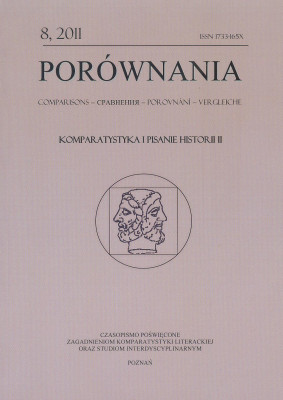On Writing History
The importance of personalism and relativism in interpreting history – as the result of Kantian philosophy – emphasised the individual aspect of cognition (it means that there is no one “truth“ and there is no one version of the past, because we can understand and interpret history in diffrent ways). The interpretations of history are created as a result of dialogue, emerging from the agon, from a dramatized “debate“, or verbal duels between the opposing parties. These remarks allow us to analise the construction of historical narrations not only in written texts but also in the visual arts. All of them lead us to the conclusion that the historical narrations are based on a mythical schema. If we look at the “writing and painting history“ from that perspective we will understand that the vision of the past has come into being under many social, cultural, religious, and aesthetical conditions and needs. History – in that sense – is a subject of artistic transformation which has nothing (or almost nothing) to do with the “truth“ of what we call historical facts. Those visions that we deal with on the canvas are artistic (and mythical) reinterpretations of well-known historical events (“well known“ due previous interpretations). It would be hard to say that they belong to historical discourse. They rather shape non-historical or quasi-historical narrations.
ISSN: 1733-165X
| Article Title | Type | Size |
|---|---|---|
| Wachowski | [pdf] | [536 KB] |
